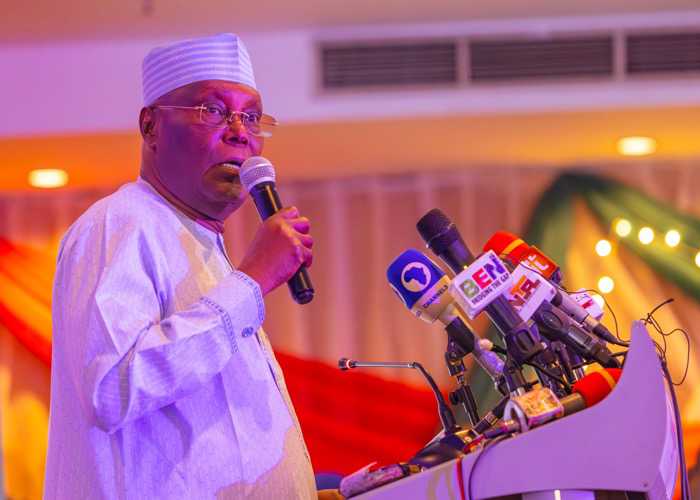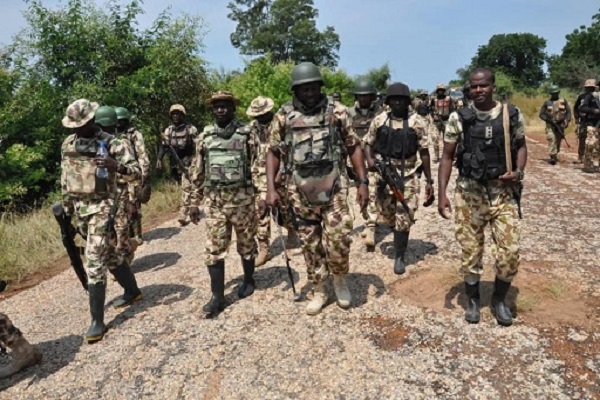The former President of Ghana Jerry John Rawlings has died at age 73 and according to unconfirmed reports, he died of COVID-19 on Thursday, November 12, 2020, at the Korle-Bu Hospital.
READ ALSO: Ex-Ghanaian President J.J Rawlings dies at 73
According to a statement released by the family of late Rawlings, they need privacy in this difficult time.
To those of you who knew little or nothing about former President Jerry John Rawlings, here are 31 facts about him.
- Jerry John Rawlings was born by Jeremiah John Rawlings on 22 June 1947.
- His parents were Victoria Agbotui, a Ewe from Dzelukope, Keta and James Ramsey John, a chemist from Castle Douglas in Kirkcudbrightshire, Scotland.
- Rawlings’ father, James Ramsey John was married in England to someone else and his descendants now live in Newcastle and London.
- He began his secondary education at the Achimota College (Now Achimota School) in 1967 and later proceeded to the military academy at Teshie.
- He joined the Ghana Air Force shortly afterwards; on his application, the military switched his surname John and his middle name Rawlings.
- In March 1968, he was posted to Takoradi, in Ghana’s Western Region, to continue his studies. He graduated in January 1969 and was commissioned as a Pilot Officer, winning the coveted “Speed Bird Trophy” as the best cadet in flying the Su-7 ground attack supersonic jet aircraft as he was skilled in aerobatics.
- He earned the rank of Flight Lieutenant and in April 1978. During his service with the Ghana Air Force, Rawlings perceived deterioration in discipline and morale due to corruption in the Supreme Military Council (SMC).
- As promotion brought him into contact with the privileged classes and their social values, his view of the injustices in society hardened. He was thus regarded with some unease by the SMC. After the 1979 coup, he involved himself with the student community of the University of Ghana, where he developed a more leftist ideology through reading and discussion of social and political ideas.
- Rawlings grew discontent with Ignatius Kutu Acheampong’s government, which had come to power through a coup in January 1972.
- Rawlings was part of the Free Africa Movement, an underground movement of military officers who wanted to unify Africa through a series of coups.
- On 15 May 1979, five weeks prior to civilian elections, Rawlings and six other soldiers staged a coup against the government of General Fred Akuffo, but failed and were arrested by the Ghanaian Military.
- Rawlings was publicly sentenced to death in a General Court Martial and imprisoned, although his statements on the social injustices that motivated his actions won him civilian sympathy.
- While awaiting execution, Rawlings was sprung from custody on 4 June 1979 by a group of soldiers. Claiming that the government was corrupt beyond redemption and that new leadership was required for Ghana’s development, he led the group in a coup to oust the Akuffo Government and Supreme Military Council.
- Shortly afterwards, Rawlings established and became the Chairman of a 15-member Armed Forces Revolutionary Council (AFRC), primarily composed of junior officers.
- He and the AFRC ruled for 112 days and arranged the execution by firing squad of eight military officers, including Generals Kotei, Joy Amedume, Roger Felli, and Utuka, as well as the three former heads of state: Afrifa, Acheampong, and Akuffo.
- Rawlings later implemented a much wider “house-cleaning exercise” involving the killings and abduction of over 300 Ghanaians. Elections were held on time shortly after the coup.
- On 24 September 1979, power was peacefully handed over by Rawlings to President Hilla Limann, whose People’s National Party (PNP) had the support of Nkrumah’s followers.
- Two years later Rawlings ousted President Hilla Limann in a coup d’etat on 31 December 1981, claiming that civilian rule was web ak and the country’s economy was deteriorating.
- The killings of the Supreme Court justices (Cecilia Koranteng-Addow, Frederick Sarkodie, and Kwadjo Agyei Agyepong), military officers Major Sam Acquah and Major Dasana Nantogmah also occurred during the second military rule of Rawlings. However, unlike the 1979 executions, these people were abducted and killed in secret and it is unclear who was behind their murders, though Joachim Amartey Kwei and four others were convicted for four of these murders, which involved all three Justices and Acquah, and were executed in 1982.
- In place of Limann’s People’s National Party, Rawlings established the Provisional National Defence Council (PNDC) military junta as the official government in 1981.
- The PNDC established Workers’ Defence Committees (WDCs) and People’s Defence Committees (PDCs) to mobilize the population to support radical changes to the economy. Price controls on the sale of food were beneficial to urban workers but placed an undue burden on 70% of the rural population whose income largely depended on the prices of agricultural products.
- Rawlings’ economic policies led to an economic crisis in 1983, forcing him to undertake structural adjustment and submit himself to the election to retain power. Elections were held in January 1992, leading Ghana back to multiparty democracy.
- Rawlings established the National Commission on Democracy (NCD) shortly after the 1982 coup and employed it to survey civilian opinion and make recommendations that would facilitate the process of democratic transition
- On 3 November 1992, election results compiled by the INEC from 200 constituencies showed that Rawlings’ NDC had won 60% of the votes, and had obtained the majority needed to prevent the second round of voting.
- In 1996, the Electoral Commission reported that Rawlings had won by 57%, with Kufuor obtaining 40% of the vote. Results by district were similar to those in 1992, with the opposition winning the Ashanti Region and some constituencies in Eastern and Greater Accra, and Rawlings winning in his ethnic home, the Volta, and faring well in every other region.
- In accordance with his constitutional mandate, Rawlings’ term in office ended in 2001. He retired in 2001 and was succeeded by John Agyekum Kufuor, his main rival and opponent in 1996.
- In November 2000, Rawlings was named the first International Year of Volunteers 2001 Eminent Person by UN Secretary-General Kofi Annan, attending various events and conferences to promote volunteerism. He established the constitution of 1988.
- In October 2010, Rawlings was named African Union envoy to Somalia.
- He gave lectures at universities, including Oxford University. Rawlings continued his heavy support for NDC. In July 2019 he went on a three-day working trip to Burkina Faso in the capacity of Chairman of the Thomas Sankara Memorial Committee.
- In September 2019, he paid a tribute on behalf of the president and people of Ghana, when he led a delegation to the funeral of Robert Mugabe, the late former president of Zimbabwe.
- He was reported dead on 12 November 2020 at Korle-Bu Teaching Hospital. Mr Rawlings had been on admission at Korle-Bu for about a week for Undisclosed ailment.
Follow the Neptune Prime channel on WhatsApp:
Do you have breaking news, interview request, opinion, suggestion, or want your event covered? Email us at neptuneprime2233@gmail.com





